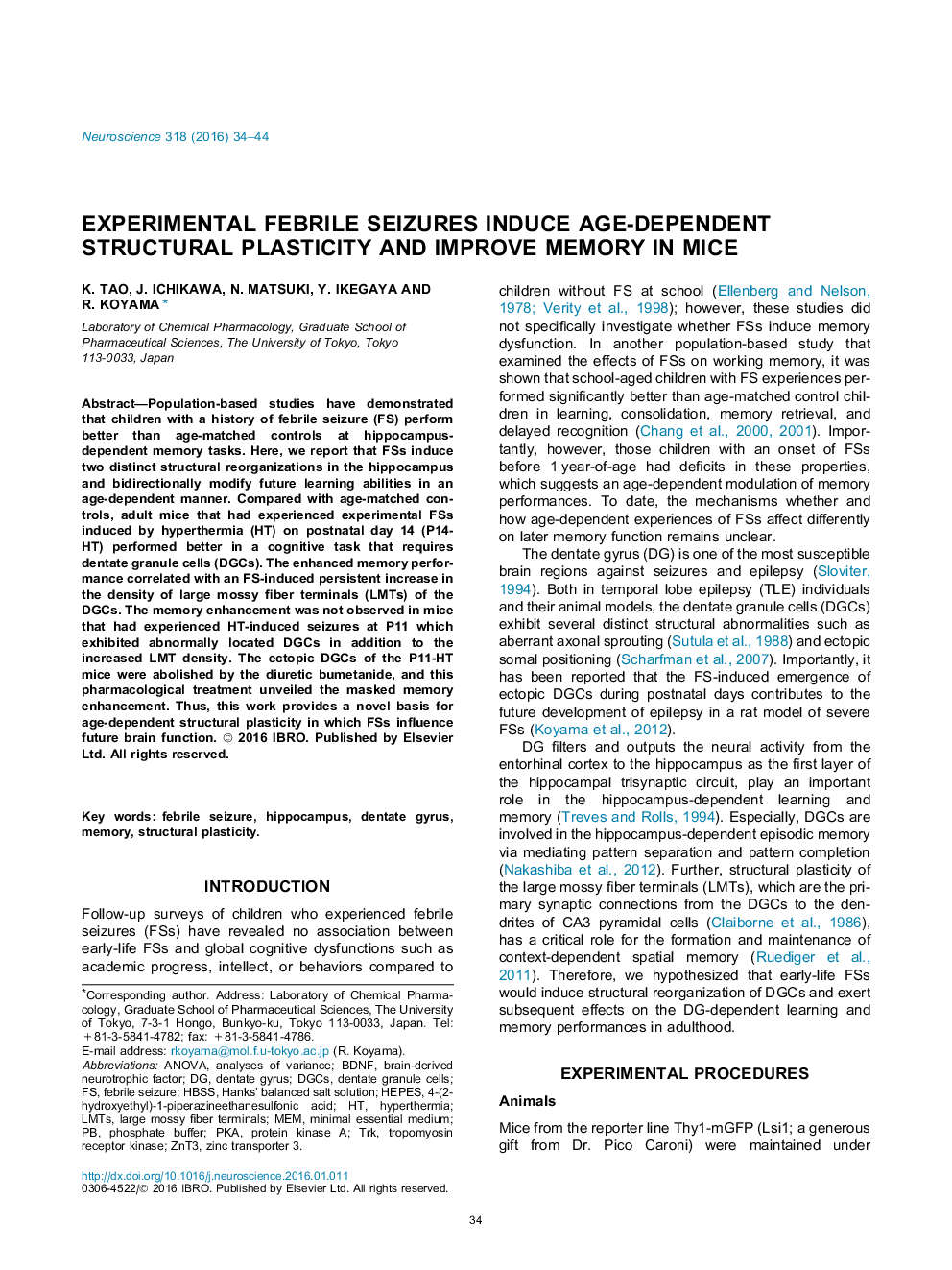| Article ID | Journal | Published Year | Pages | File Type |
|---|---|---|---|---|
| 4337369 | Neuroscience | 2016 | 11 Pages |
•Early-stage febrile seizures improved dentate granule cell-mediated memory.•Increased mossy fiber synapses after febrile seizures underlay memory enhancement.•Late-stage febrile seizures attenuated memory enhancement via granule cell ectopia.•Abolishment of the ectopic granule cells rescued memory enhancement.
Population-based studies have demonstrated that children with a history of febrile seizure (FS) perform better than age-matched controls at hippocampus-dependent memory tasks. Here, we report that FSs induce two distinct structural reorganizations in the hippocampus and bidirectionally modify future learning abilities in an age-dependent manner. Compared with age-matched controls, adult mice that had experienced experimental FSs induced by hyperthermia (HT) on postnatal day 14 (P14-HT) performed better in a cognitive task that requires dentate granule cells (DGCs). The enhanced memory performance correlated with an FS-induced persistent increase in the density of large mossy fiber terminals (LMTs) of the DGCs. The memory enhancement was not observed in mice that had experienced HT-induced seizures at P11 which exhibited abnormally located DGCs in addition to the increased LMT density. The ectopic DGCs of the P11-HT mice were abolished by the diuretic bumetanide, and this pharmacological treatment unveiled the masked memory enhancement. Thus, this work provides a novel basis for age-dependent structural plasticity in which FSs influence future brain function.
